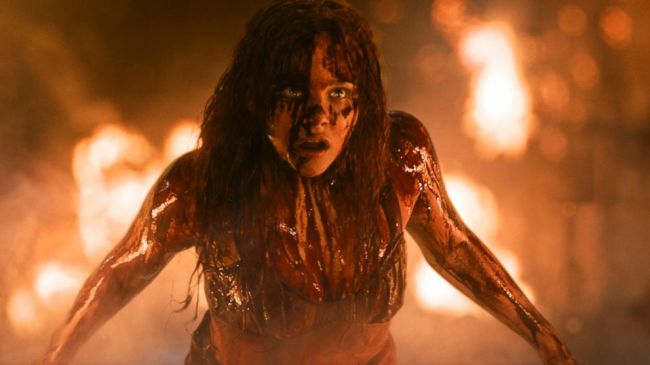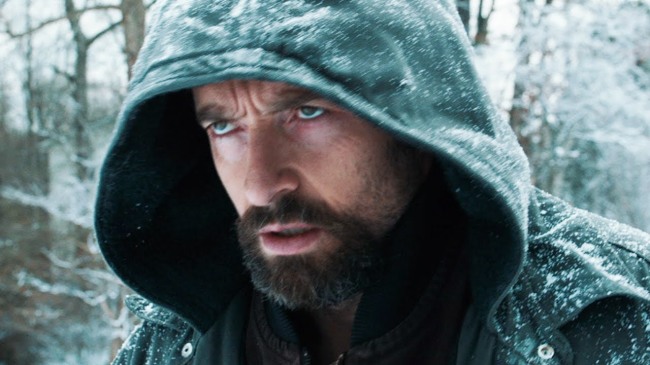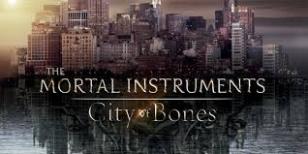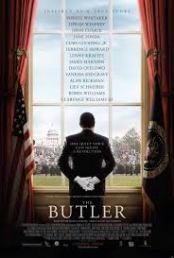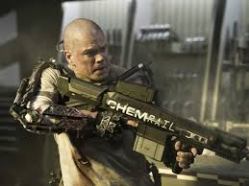Sequels. One of the toughest types of films to pull off. They truly are a very delicate balance. Their existence is determined by the success of the film before it and thus, they are expected to retain those elements that made it successful. The flaw in this, of course, is that too often they are also criticised for repeating those same elements. Comedies are criticized for using the same jokes, action thrillers for using the same plots, etc. Super hero blockbusters, however are probably the most difficult.
Not only do you have to make the film better, you have to avoid falling into familiar patterns as well as please a rabid fan base who have likely read the original comic source material and will hate the film if it deviates even slightly. Now that IS a generalization and I don’t want to tar all comic fans with the same brush. Still, this illustrates the unique challenges that go into this sort of film making.
Adding to the mix is a growing social awareness of representation in film and *why* it is important to represent characters beyond the stock white male action hero. People are actively voicing their desire to see other types of people on screen in lead roles such as women, people of colour, LGBT characters and characters with disabilities and this is an awesome thing. I am one of these people so I understand the frustration when some of these stories fall short of the mark. I mention this because Joss Whedon, the director of Avengers: Age of Ultron is a man who has made it very clear through his body of work that he is a feminist that believes highly in the importance of strong, well written, and well rounded female characters. His career has been built on this feminism and desire for representation.
The first Avengers was one of the most successful films of all time. Joss’ challenge was then to make a sequel that could top it, stay faithful to his fan base, AND the Marvel Cinematic Universe that was built around him in the previous films, not to mention maintain pace with the television show “Agents of Shield”. Yeah, no pressure there.
As Joss himself said in an interview “the moment you declare yourself politically, you destroy yourself artistically”. I fully understand what he meant when he said this and the reaction after the film’s release shows this statement to be more than true. Amid accusations from fans (as well as people simply with an axe to grind against Whedon), he has been accused of abandoning his “feminist cred” with this film due to how Black Widow’s character was handled (more on this later). A joke made by Tony Stark also received a lot of ire (in which he attempts to lift Thor’s hammer and when doing so declares that if he rules Asgard he will re-institute Prima Nocta). I find this to be particularly hypocritical since most of these criticisms came from social media and blogs. A lot of those same blogs turned around to praise other films that make far worse jokes, such as Pitch Perfect 2 in which a Guatemalan character tells the girls that when she was 9 years old, her brother tried to sell her for a chicken. I don’t know about you, but I have far more of an issue with a joke about sex trafficking than I do about a joke that centres around an ancient rite that may not have even existed.
That being said, the point of even mentioning this is to highlight just how difficult a task Whedon had ahead of him with “Age of Ultron”. In my view, he succeeded with this film. Are there problems with it? Absolutely! There were problems with the first film as well. Despite this, it is a good movie and makes for a highly entertaining two and a half hours.
“Avengers: Age of Ultron” picks up largely where the last film leaves off. The team are fighting together to take down a Hydra base and retrieve Loki’s sceptre. Upon doing so, Tony Stark (Robert Downey Jr.) and Bruce Banner (Mark Ruffalo) ask Thor (Chris Hemsworth) for permission to study the sceptre for three days before Tony’s big party. Mere scientific curiosity takes a back seat when Banner and Stark discover inside the sceptre lies a super computer more alien and powerful than they have ever seen. What follows is a pretty familiar story – a type of “Frankenstein”-like tale, if you will. In an ill fated attempt to bring about “peace in our time”, Banner and Stark try to use the sceptre to implant an artificial intelligence into one of Tony’s suits as a peace keeping measure. The AI system, upon seeing the task ahead of him, realizes that the only way to achieve peace in our time, is by wiping out all of humanity – starting with the Avengers.
Ultron (James Spader) achieves sentience during a party that Stark hosts, takes them by surprise, thus revealing to the other team members the extent of Banner and Stark’s experimentation. Ultron escapes, and manages to recruit two “enhanced” humans that Hydra had been experimenting on using their axe to grind with Tony Stark as fuel. The twins Pietro and Wanda Maximov (Aaron Taylor Johnson and Elizabeth Olsen), have their own journey in the film culminating in them joining the Avengers along with a second Stark creation called The Vision (Paul Bettany). The final line-up is present in the cinematic battle of good vs. evil.
The Good:
- The chemistry between the ensemble cast. A cast this large can be very difficult. Allowing for each character to have enough screen time and fit that into the overall plot arc is hard when you have only a few characters to work with. “Age of Ultron” features at least seven main characters, all of whom have their own personal character arcs. The balance with which this was done is incredible, not to mention the chemistry within the cast itself. It’s no secret that Joss loves a good ensemble cast and while he may not have chosen all his actors personally, he knows what drives each character and how to get the best performance out of them. No team member is superfluous and each has something important to do that fits the overall plot line.
- The performances. These are grown adults in superhero outfits. Some of these outfits look quite silly and yet unlike DC (whose heroes seem almost apologetic about their costumes), the actors own their characters and bring a seriousness to it as well as a sense of silliness. The fact that they are wearing capes does not take away from the drama of the film or the fun for the audience. The performances are strong, nuanced and in some places quite powerful. Robert Downey Jr. masterfully portrays Tony Stark who manages to walk the line between peace maker and megalomaniac. The effects of the battle of New York in the first film are still with him and they drive his desire to protect the world from the next alien threat they may face. The same is true for Scarlett Johansson who picks up as Natasha Romanov – the Russian former assassin on her own journey for redemption. The first film dealt with Romanov joining the Avengers in an attempt to erase the “red in her ledger”. Whedon only gave us a small glimpse of her character but it was more than enough thanks to his writing and her acting. She may, in the hands of a lesser actress, have come across as your typical “strong female character” ™, who kicks butt, takes names, and shows zero vulnerability, emotion or character depth. Don’t get me wrong, I LIKE seeing female action heroes, but too often they are reduced to the type of character who runs through the movie beating up bad guys in skin tight cleavage bearing costumes, quipping jokes and never cracking a smile. That is not Romanov. Her character is tough, yes, wears tight leather, yes, but is also allowed to be soft and occasionally weak. She is full of pain, regret, and flaws – like any well written character in fiction. Johansson manages to highlight all these facets of her personality within the short time frame allotted. James Spader also did a very good job as Ultron. I was more pleased with him than I thought I would be given that he was playing a crazed robot. I didn’t expect the level of depth that I saw in his character and liked the way that his acting, dialogue and even way of speaking seemed to mirror a darker side of Tony Stark – like the worse aspects of Stark’s personality magnified. Other performances are worth noting, but if I continue to discuss them all, I will take up far too much space. Suffice to say the cast was well chosen and ALL of them hit their mark.
- The dialogue. Typical, wonderful and Whedonesque, the key reason I always enjoy one of Joss’ projects is the dialogue. He can do wonderful things with the words chosen for his characters. He shows us through his characters words, who they are and what they want. Ultron has a very specific personality that is half Tony Stark and half something else. The twins might not have much screen time, but we are able to feel their pain through the description Piotr gives at the beginning of what Tony has done to him (however inadvertently). Tony’s quips and jokes are spot on, and the dialogue between Widow and The Hulk is touching. He shows the teamwork and friendships the characters have formed through his dialogue as well, allowing us to see how far they have come. The beginning scene is very illustrative of his when Tony says “shit” and Captain America (Chris Evans) admonishes him for his language. Tony fires back with “did Cap just say ‘language’?” which eases the tension. All this is done WHILE they fight showing us the easy comradery the characters have developed as they work as a team. The joke makes its way throughout the film reminding us each time that they are a team at the core and they will get through this. That is the mark of a good writer.
- The theme of the film. The first film focuses around the team coming together and overcoming their differences in order to work as a team. This film begins with a scene that showcases how they have managed to do that at the beginning with the fight to reclaim Loki’s sceptre. It’s fun to see them having figured out how to fight as a unit, the friendships and easy comradery, but of course that can’t last. While the first film might have been concentrated on how to get them there, this film focuses on the crisis that occurs when they are confronted with a monster of their own creation. This time it’s not just an outside enemy that they have to face, but their own inner fears and demons. A good reason why the inclusion of Scarlet Witch works so well is that her powers cause them to fall apart from the inside. We get an excellent insight into what each of them fear and how that fear affects the team dynamic. This is something Joss has always done very well and this is no exception.
- The concern that is shown for human life. This is something that continually pisses me off with superhero movies – the big battle sequences often destroy massive amounts of property and kill countless civilians and the heroes don’t tend to seem too concerned about it as long as they get their bad guy. DC is particularly guilty of this (Man of Steel, looking at you!), and it’s frustrating as hell. Not so with Avengers. Both the first film AND the second film make it a point that human life is the priority over all else. The first film showed the team creating a perimeter in New York City and evacuating the civilians to the best of their ability. They made it their goal to confine the battle to that area and contain the damage to minimize casualties. This is heightened in the second movie in several different spots. The scene at the beginning where Tony sends his drones to evacuate the city, the scene where he brings out the Hulk busting armour and scans a building that is about to come down for vital signs and of course the entire battle sequence in Sokovia at the end is entirely built around saving people and minimizing casualties.
- The scene with Tony Stark’s party. Awesome. Just awesome. It’s one of the few times we get to see them relaxed and having fun. It’s the stuff fanfiction is made of. Is it fan service? Yes, but it’s awesome fan service.
- The relationship between Hulk and Black Widow. Yeah it got a lot of controversy. People claiming that by giving her a love interest, they are somehow denying the strength of her character and I can see the logic in it to an extent. She IS the only female member of the team and therefore is rather (unfairly) expected to represent all aspects of the female experience. This would be a difficult task for any character. Arguments have been made that by giving her a love interest, the story is then more about her romance than it is about her redemption. Again, I can see it to an extent, but for me, the romance WAS about her redemption. It was about both her and Bruce Banner – both people isolated by society and both people who believe their actions in the past have made them monsters. It makes sense that widow would gravitate to the one person who couldn’t even begin to judge her for what she has done. But it’s more than that. She wants to save him because in saving him, she believes she is capable of saving herself. She is worthy of forgiveness. I thought it was nuanced and very well done. The characters have mad chemistry and I don’t think it diminishes her as a character to fall in love. I think it shows yet another layer that I hope will be explored when (please let it be when), she gets her own movie.
The Bad:
- The action sequences/3D. I did not feel the 3D was necessary for this film. Some films I can see the justification of it, but for this one, the only justification I could see was the desire for Marvel/Disney to suck more money out of our pockets. I know there are sometimes non 3D showings, but they are few and far between these days and we wanted to see it in the VIP theatre which was ONLY 3D. I get a migraine from 3D and my eyes never quite focus on the image properly. Nothing bothers me more than a movie pointlessly put in 3D. The action sequences felt overly long as well and a bit bloated. That’s something I never expected to say about a Joss Whedon film, as normally I find his pacing to be second to none, but in this case I felt that a lot of the sequences went on far longer than they needed to. One scene in particular that stands out for me as being far too lengthy is the scene in which Tony is using his Hulk Busting Armor (called Veronica) in order to stop Banner from destroying everything. It felt as if this scene dragged on with almost no end in sight and since it wasn’t really all that necessary plot-wise, it quickly became quite boring.
- The pacing. This kind of ties into the action sequences being far too long, but it is worth mentioning. The scenes I most enjoyed in the film were the scenes that allowed the characters a little downtime between giant bloated action sequences. These could have been placed better however, and I felt that a lot of the movie dragged in places. I know that Whedon’s original cut of the film was over 3 hours long, and while I am glad they cut it down, I do felt that some of the wrong material was cut.
- The scene with Thor and the mystical pool of holy water or whatever the hell it was. I get it – Marvel wanted this scene there, but it felt REALLY out of place. It felt totally shoehorned in and kind of silly.
Overall this was a solid action/adventure superhero story with great dialogue, characterization and a perfect cast. Is it Joss Whedon’s best? No, not by a long shot, but it IS awesome. While I think it’s a shame that Whedon won’t be involved with future Marvel films, I am excited to see what he can do with his own material as well as full creative control.





